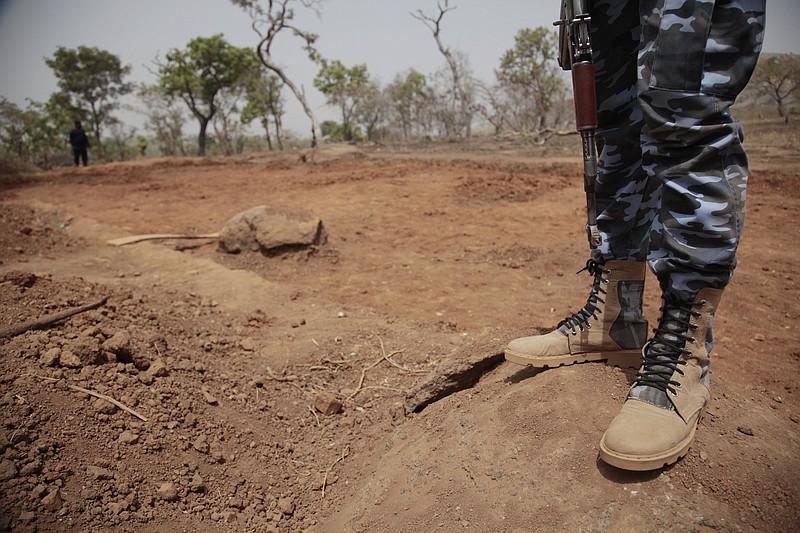ABUJA, Nigeria (AP) - Nigerian police say it is not clear if a ransom was paid for the release of two German archaeologists freed by their kidnappers over the weekend.
Professor Peter Breunig and Johannes Behringer of Frankfurt's Goethe University were seized at gunpoint Wednesday from Jenjela village in Kaduna state, less than 100 kilometers (60 miles) northeast of Abuja, Nigeria's capital. Two villagers who tried to help them were killed by the kidnappers.
The kidnappers released the Germans on Saturday night, said a police statement.
The kidnappers made direct contact with the German Embassy, a senior police officer involved in the search told The Associated Press on Tuesday. A worker at Jenjela said the kidnappers demanded a ransom of 60 million naira ($200,000). Both men spoke on condition of anonymity because they are not authorized to speak to reporters.
The German Embassy in Abuja said only the Foreign Ministry in Berlin can comment. The ministry said Monday the two academics were at the German Embassy and doing well considering the circumstances.
It was unclear if the kidnappers were paid or if they were frightened off by a massive hunt launched by police Special Forces, an elite anti-kidnapping unit and security agents aided by a low-flying helicopter.
The officer said security operatives had created a cordon to block off a thick forest where kidnappers often take hostages. He said the search for the kidnappers continued on Tuesday.
On Monday, Kaduna state Gov. Nasir Ahmad El-Rufai had "commended the security agencies for their efforts in securing the release of the Germans." But he gave no details.
Kidnappings for ransom are common in Nigeria, with ordinary residents and even schoolchildren targeted as well as foreigners. Victims usually are freed unharmed after a ransom is paid, though security forces have rescued a few high-profile abductees.
Sierra Leone's deputy high commissioner was kidnapped at gunpoint on the highway from Abuja to Kaduna in June and held for five days before he was released. Sierra Leone denied any ransom was paid.
Breunig, 65 and Behringer, in his 20s, are part of a four-man team from Goethe University investigating the culture of the Nok people in collaboration with Nigeria's National Commission for Museum and Monuments. The early Iron Age people, considered the earliest ancient civilization of the West African region that is now Nigeria, are famous for their terracotta sculptures.
___
Associated Press writer Michelle Faul contributed to this report from Johannesburg.
